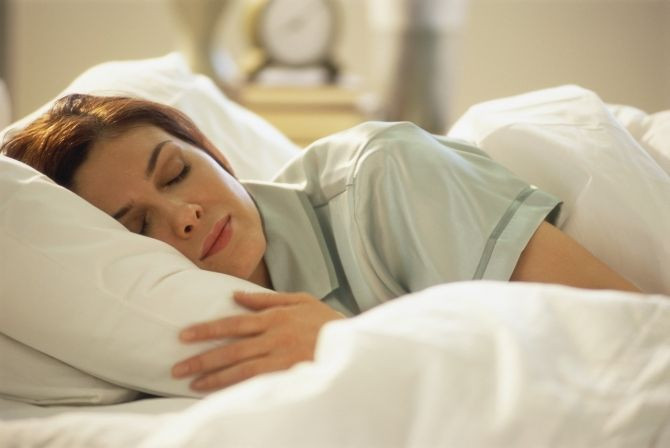Lack of Sleep Greatly Increases Stroke Risk in Healthy Adults

All you overworked and tired men and women out there should heed this warning about getting a good night's sleep. A new study shows that getting less than six hours of sleep increases the risk of stroke.
Getting a poor night's sleep is affecting not the overweight or a certain group of men or women. Getting less sleep is significantly increasing the risk of stroke for normal-weight adults. Sleep is something most people have control over and making the extra effort to get an extra hour of shut eye may go a long way to reducing your stroke risk.
The study was led by Megan Ruiter, PhD, from the University of Alabama at Birmingham. Researchers followed 5,666 individuals for three years to see what role a lack of sleep had on stroke risk.
The individuals had no history of stroke, transient ischemic attack (mini stroke) or any signs of stroke. Participants had no other factors that were affecting their sleep as they were at low risk of having obstructive sleep apnea.
The researchers adjusted for body-mass-index to account for any weight disparities among the participants. Getting under six hours of sleep was strongly associated in more stroke symptoms in adults who were middle-age or older. There was no association between getting less than six hours of sleep and stroke symptoms for overweight or obese adults.
This research is surprising because the common risk factors associated with stroke were not present in the adults. Researchers note that some stroke factors, such as obesity and breathing disorders that affect sleep, were not present in the group of adults who were just getting a poor night's sleep.
The researchers believe that lack of sleep has its own perils that are independent of other stroke risks. Lack of sleep could be the first step to traditional stroke risk factors. Once these more common risk factors manifest themselves, they will soon take over as the main risk factors for stroke in adults instead of lack of sleep.
This study may help pave the way for how adults look at sleep. Future research could strengthen this study's findings which could lead to better awareness of the importance of sleep on stroke risk.
Getting more sleep is not a difficult thing to do. Modifying behaviors could get you ready for bed earlier and there are also options, such as therapy or drugs, which can get you on track for a full night's sleep. The next time you are staying up late trying to cram in another project, think twice about what impact that will have on your sleep and on your health.
The study was presented at SLEEP 2012 the 26th annual meeting of the Associated Professional Sleep Societies and should be considered preliminary until published in a peer-reviewed journal.
Funding for the study was provided by the National Institutes of Health (NIH) National Institute of Neurological Disorders and Stroke.



























